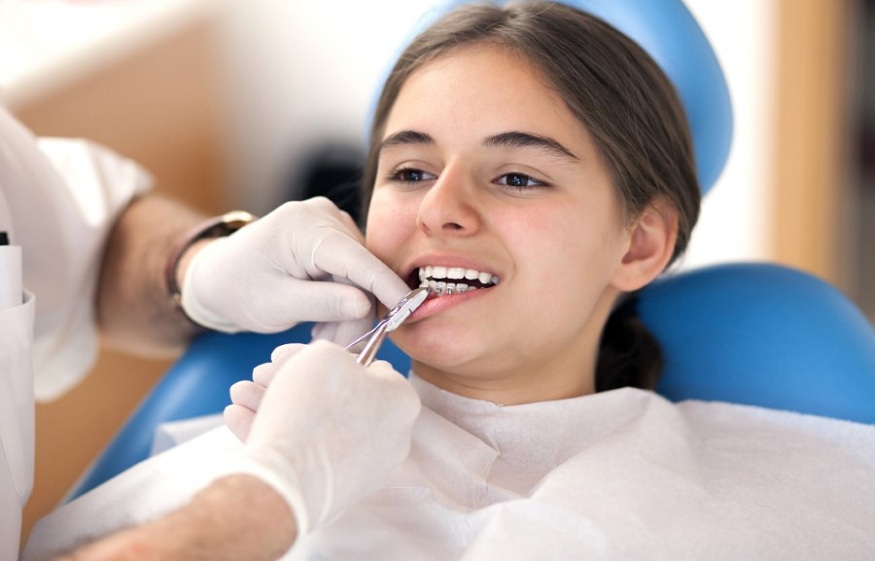Initially, getting braces can be uncomfortable for some patients, and any harm done to the mouth or face while wearing braces can be considerably more unpleasant. Here are some methods for treating typical injuries with braces as well as some advice on how to prevent injuries altogether.
Calling your orthodontist is the first thing you should do if you think you may have seriously injured your mouth. They can advise you on the best course of action and ensure that neither you nor your braces have been seriously damaged. So search for “orthodontic treatment dentist near me” for finding the nearest dentist in your location.
It is advisable to act soon if you suffer an injury that results in a tooth or part of a tooth being knocked out. If you can, save the tooth in a clean container and bring it with you in case it may be fixed.
Mouth Injuries with Braces That Are Most Common
Damage to those using braces can dislodge teeth, irritate the gums, and cause excruciating sores on the inside of the cheeks and lips. The easiest and most efficient technique to reduce swelling and relieve pain is by using ice packs.
If you have any facial trauma, your cheeks or lips may become trapped in the braces, leading to unpleasant bruising or cuts. Damage to soft tissues often heals quickly on its own. However, you may make the healing process easier for yourself by using cold compresses and painkillers. Gum inflammation can result from any face injury that moves teeth. The gum swelling or irritation can be relieved by rinsing with a saltwater mix.
After an accident, topical pain relievers sold over-the-counter can help the injured region feel better.
Apply orthodontic wax to your braces if you have an open tissue lesion to prevent further irritation from the brackets or wires. Give yourself enough time to recover if you’ve hurt your face. This might entail refraining from engaging in dangerous, high-contact activities and eating only bland foods that require little chewing.
Or you can simply, call your orthodontics or search for “teeth braces dentist near me” to find the nearest one in case of an emergency.
If A Trauma Moves Your Teeth…
It is likely that the bone around the teeth was injured if the event causes the position of the teeth to alter. This is actually a benefit. Bone generally gives way before the roots of the teeth do because it is more brittle than the teeth themselves. This is good since teeth do not mend as bones do. If trauma has caused your teeth to shift or become displaced, you should visit an oral surgeon so that the region may be examined, and numbed, the teeth can be realigned, and the surrounding bone can be pushed back into its original position.
After treating the injury, the oral surgeon will likely remove the wire from any braces that are twisted or broken and refer you back to your orthodontist to have it replaced. When trauma occurs, having braces on every tooth ties them all together and is sometimes the only thing that keeps the teeth from falling out entirely.
During Therapy, Mouth guards Can Stop the Majority of Dental Injuries
There are certain injuries that cannot be avoided, but there are plenty. Your lips and teeth can be safeguarded throughout treatment with specially crafted mouthguards that fit over your braces. These are maintained in place by the bite, lips, and braces themselves, in contrast to the ones that you boil and modify to fit snugly over the teeth.
The boil-and-fit mouthguards won’t fit properly since the position of the teeth varies throughout treatment; at worst, they may actively stop the teeth’s progress toward their desired position. When you engage in activities where there is a chance you may be hit in the mouth, be sure to let your orthodontist know so they can prescribe a mouthguard for you.
Google “orthodontic treatment near me” today to get your braces fixed if you feel any discomfort. By prolonging to do so, you might face some issues in near future or don’t get the desired result when braces are removed.

